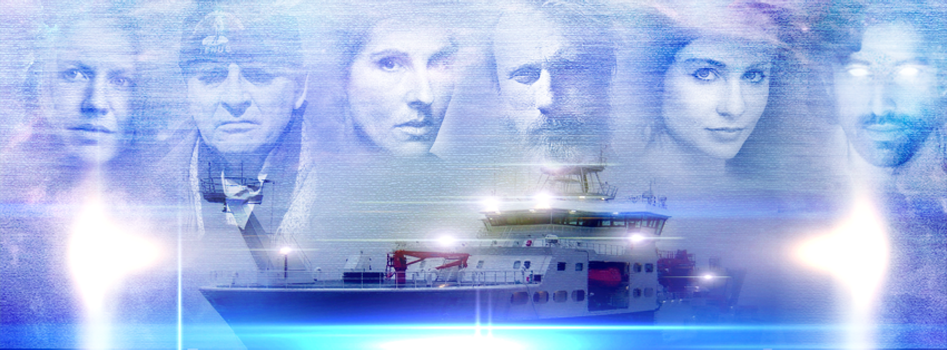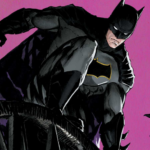
WARNING: This review contains SPOILERS for episodes 1-5 of The Light of September. New listeners can check out my previous reviews of the series for a proper introduction.
With haunting strings and the furious sound of pirates raging against the door, The Light of September returns on a moment of powerful action. Captain Dalton and the women of the Venus are taking a stand, rebelling against the capture they’ve endured since the midpoint of episode four and fighting for their lives. Bjorn has likewise been taken by the crew of the SS Calvary, imprisoned for crimes against the Concord of Christ and subject to barbaric torture. It definitely feels like a midpoint to the story while still aspiring to be the start of something new. Yet it’s the depth of character that truly makes episode six worthy of a listen.
Far from playing damsels in distress, the capture has galvanised the female cast into a force of action, fending off the pirates from their stronghold in the lower decks and even capturing one for interrogation. The lack of backstory to the pirates raises intriguing questions about the state of reality. When asked what his life was like before the ship, he replies “ain’t no before that”. Although the crew has no idea what’s going on, neither do the pirates, and Captain Dalton intends to use that to her advantage. Impulsive, but fiercely protective of her women, Tamsin Greig is finally showing why she was Captain of the Venus in the first place. It’s a departure from her distant and removed role in the early episodes and it’s been a transition that’s showing real growth to her character.
Meanwhile, the religious sect of the SS Calvary that has captured Bjorn is in full control to terrifying consequences. The confused helmsman on the radio with Calvary thoroughly gives us some good laughs early in the episode, while Robert Picardo’s character, Captain George Garrian, has become loathsome in his growling, unbending spirit of righteousness. When asked what kind of research ship he runs, Garrian replies “a good one” and you can hear the implications of that ‘good’. He is the wrath of God incarnate. A representation of all forces that have turned religion into a weapon of power. Post-Brexit, writer Dan Freeman tweeted a message that The Light of September “is about a load of Europeans, an American and an Arab superhero fighting fundamentalism”. You can absolutely hear that sentiment present in this episode.
Karim Saleh spends this episode putting in the most energetic performance of the series: he’s absolutely manic and furious. He’s been that way since the beginning, but the circumstances that define Alquetta push him over the edge into rabid madness, and the way Saleh devours those argumentative moments against other members of the cast is something worth listening for. His most memorable appearance in the episode is unfortunately one we don’t get to experience, but it may be all the more powerful because of that. The crew of the Calvary call it an appearance of “the devil himself” and unlike “anything god made”. It’s a purely visual moment, and it’s a testament to the quality of Radio Static’s production that it works as well as it does, while still leaving my mind that room to imagine something truly otherworldly.
A subtle treat of Before We Were Pirates is an ethical argument between Bjorn and Alquetta that remains unresolved by the end of the episode. A heat of the moment decision that the men split over both emphasises the stakes and gives some real conflict between our protagonists to ensure things never get too morally black and white. These moments, while not as flashy or technically impressive as some of the “special effects” sequences I’ve praised in earlier episodes, nevertheless show a maturity in the writing and a solid grasp in the kind of character-driven storytelling that’s always going to suit audio best. While Bjorn still seems in shock at the events that are unfolding, the opportunity for conflict between him and the rest of the crew is ripe.
Whereas the last episode was filled with carefully paced moments and special effects that I loved, this feels like the start of a conclusion to the pieces that have been set up. This is another transition episode, but formidable, with strong performances and the beginning of some real action being taken by the female members of the cast. I would be painfully dismayed if this was the last time we see the SS Calvary, as I think their alternate-history premise is an interesting one that could still be further explored. Yet at the same time I know it would be an opportunity to introduce an even greater challenge. In previous episodes, George Garrison mentioned strange beasts and sea creatures as big as islands. Whether what the Venus comes up against next is pirates, religious fundamentalists, or something even more otherworldly, the old sea adage stays true: here be monsters.
The Verdict
Fund It. We’ve passed the halfway mark in my reviews for this series, so an official verdict on my part definitely isn’t needed. If you’re on board with The Light of September by this point, you know what to expect. Great use of audio as a medium, killer performances from cult actors, and a genuinely interesting sci-fi tale. The standout moments of this episode come from Kalim Saleh and Tamsin Greig. While it feels like a midpoint, the overall structure of the series has used its short episode runtimes to craft engaging cliffhangers that have constantly kept the story moving, teasing enough to draw you back in episode after episode. The Light of September lives and dies on the back of funding each episode. It’s not a bad model to have.


![[REVIEW] MEET VALIANT’S DEADLIEST WOMAN IN ROKU #1](https://geekd-out.com/wp-content/uploads/2019/10/AUG192301-e1572313666403-150x150.jpg)
